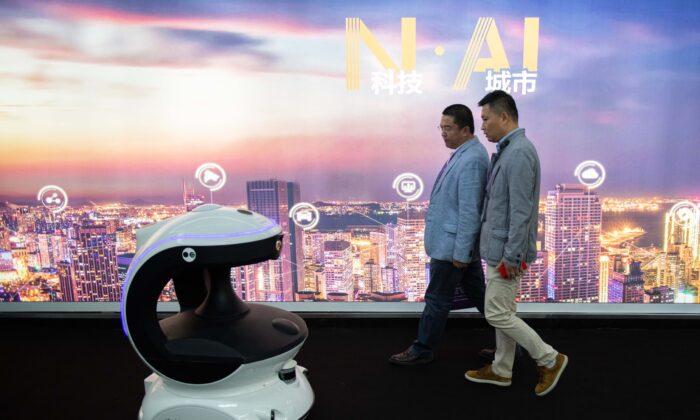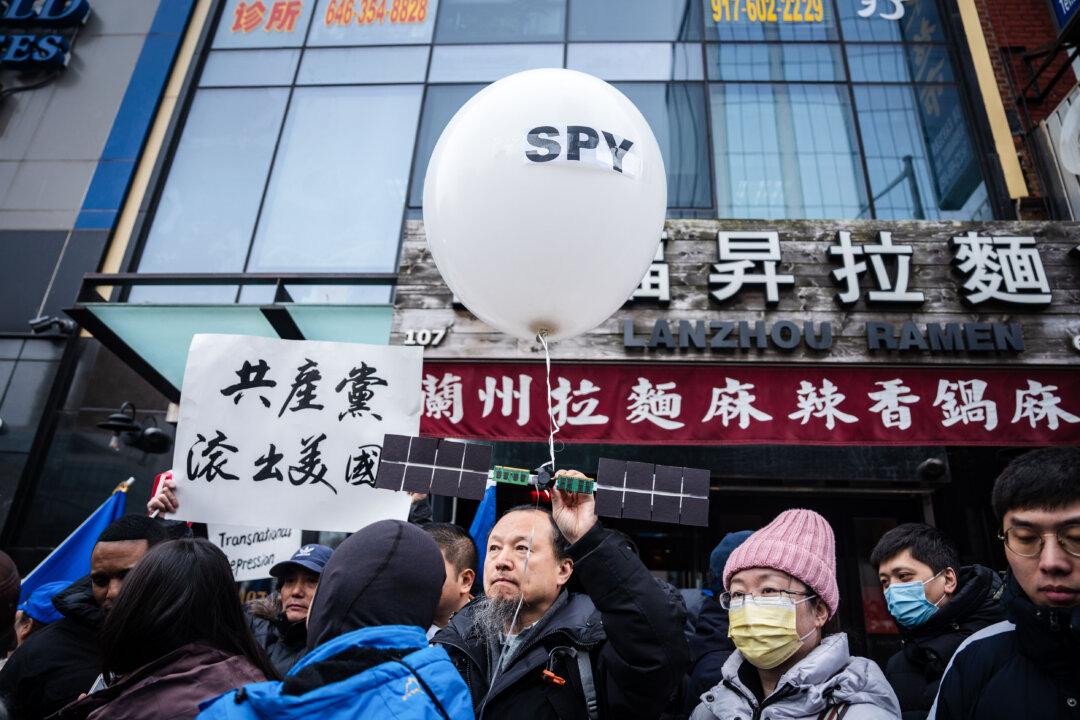The United States must sharpen its artificial intelligence-powered tools in order not to fall behind the efforts of communist China, a U.S. national security commission has told Congress.
If left unchecked, the communist regime’s rapid advance in the AI field would see China surpass America within the next decade, warned the commission, headed by former Google Chairman Eric Schmidt, along with executives from Microsoft, Oracle, and Amazon.
“China is organized, resourced, and determined to win the technology competition,” it stated, adding that the regime “is executing a centrally-directed systematic plan to extract AI knowledge from abroad through espionage, talent recruitment, technology transfer, and investments.”
The heavy digital dependence of Americans could make AI systems a convenient tool for adversaries such as the Chinese Communist Party (CCP) to amplify influence operations in future warfare, making every citizen or organization a potential target, the report stated.
AI could also help state actors harvest personal data of private American citizens to “model how best to manipulate behavior or cause harm,” accelerate cyberattacks, and program biotechnology innovations with little regard to bioethical standards, the report stated.
“Massive genomic data sets at places like BGI Group (formerly known as the Beijing Genomics Institute), coupled with China’s now global genetic data collection platform and ‘all-of-nation’ approach to AI, will make them a formidable competitor in the bio realm,” it stated.
BGI, a leading Chinese genomics company based in Shenzhen, built the country’s first national-level gene storage bank called China National GeneBank with state approval and funding. It’s also a major global supplier of COVID-19 testing kits, which has provided it access to massive genetic datasets. With AI, adversaries could engineer a pathogen that targets a genetic profile or enhance the physical or mental strength of human beings, according to the commission report.
“The United States cannot afford to look back in 10 years and be ‘surprised’ by the biotechnology equivalent of Huawei,” the report states.
Russia and China’s lack of oversight and accountability also create an unlevel playfield in the military as autonomous weapon systems proliferate, the report stated, pointing to China’s active efforts to export autonomous armed drones to the Middle East that can conduct “autonomous, lethal, and targeted strikes.”
Revitalizing US Semiconductor Manufacturing
While the United States has stayed two generations ahead in semiconductor design and manufacturing, American leadership is “eroding,” according to the report.Intel, a leading U.S. chipmaker, is on trend to become “two generations or more behind the cutting-edge node by 2022,” the report stated. In the meantime, the United States lacks domestic semiconductor manufacturing plants and is reliant on imports from nations such as Taiwan, creating national security concerns in the event of supply chain disruption.
The commission recommended applying targeted export control on key semiconductor manufacturing equipment.
Due to the two nation’s deep commercial and academic ties, selective, rather than broad-based decoupling will be more effective in helping America protect key technologies while inflicting minimal economic costs on the United States, the commissioners say.
The report further advised the U.S. government to bring together like-minded allies to “build a digital coalition that ensures a democratic vision for AI,” and strengthen visa screening to “guard against the entrance of researchers with problematic affiliations.”
It also called for disclosure mandates on any outside or foreign support for federal grant applicants to “deter bad actors” who join problematic Chinese recruitment programs designed to funnel U.S. research secrets to China.
U.S. prosecutors charged about a half-dozen Chinese researchers in 2020 with visa fraud for failing to disclose their ties to the Chinese military.





